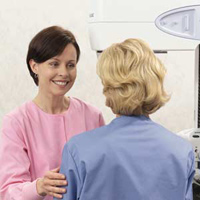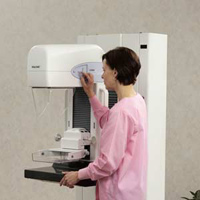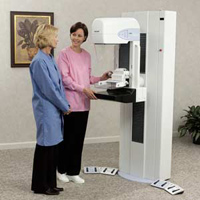Breast Cancer Screening
Women at average risk should begin annual mammography at the age of 40. Despite its limitations mammography is the most effective and valuable method for breast cancer diagnosis.

Screening decisions in older women should be individualized by considering the potential benefits and risks of mammography in the context of current health status and estimated life expectancy. As long as a woman is in reasonably good health and would be a candidate for treatment, she should continue to be screened with mammography every year.
For women in their 20s and 30s, it is recommended that clinical breast examination be part of a periodic health examination, preferably at least every three years. The possibility of breast cancer is low for women under 20 and gradually increases. Asymptomatic women aged 40 and over should continue to receive a clinical breast examination as part of a periodic health examination, preferably annually.

Beginning in their 20s, women should be told about the benefits and limitations of breast self-examination (BSE). The importance of prompt reporting of any new breast symptoms to a health professional should be emphasized. Women who choose to do BSE should receive instruction and have their technique reviewed on the occasion of a periodic health examination. It is acceptable for women to choose not to do BSE or to do BSE irregularly. Women should have an opportunity to become informed about the benefits, limitations, and potential harms associated with regular screening.
Women at increased risk of breast cancer might benefit from additional screening strategies beyond those offered to women of average risk.
In this category belong women that have one or more of the elements below in their family history:
- Two or more relatives with history of breast or ovarian cancer
- Relatives with breast cancer history before the age of 50
- Relatives with history of two types of cancer (breast-ovarian cancer, two types of cancer irrelevant to breast)

For these women we recommend earlier initiation of screening, shorter screening intervals, or the addition of screening modalities other than mammography and physical examination, such as ultrasound or magnetic resonance imaging.
However, the evidence currently available is insufficient to justify recommendations for any of these screening approaches.

